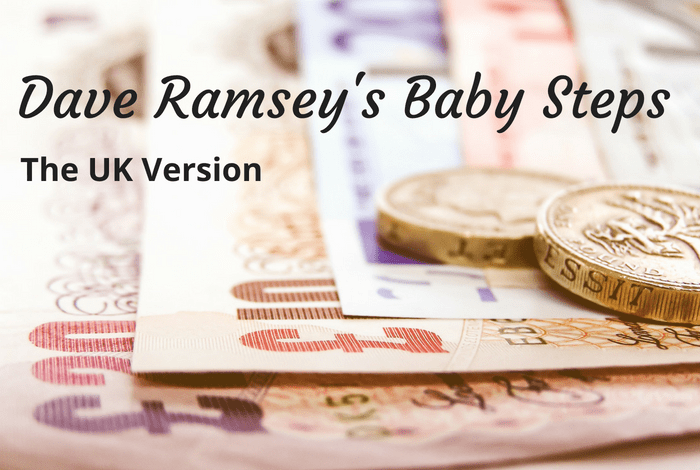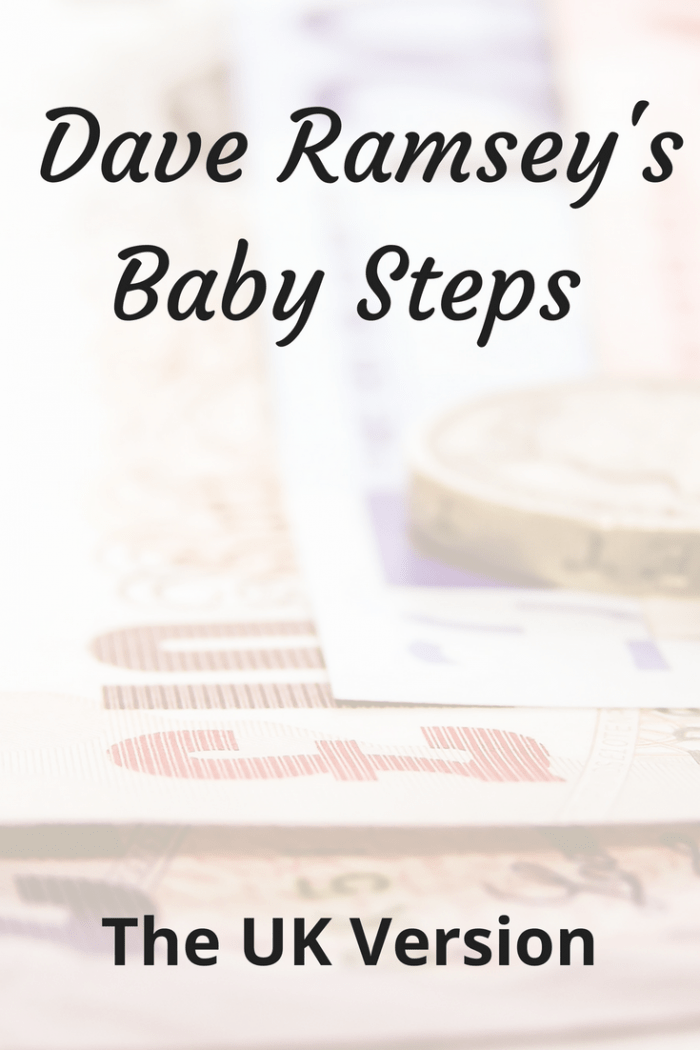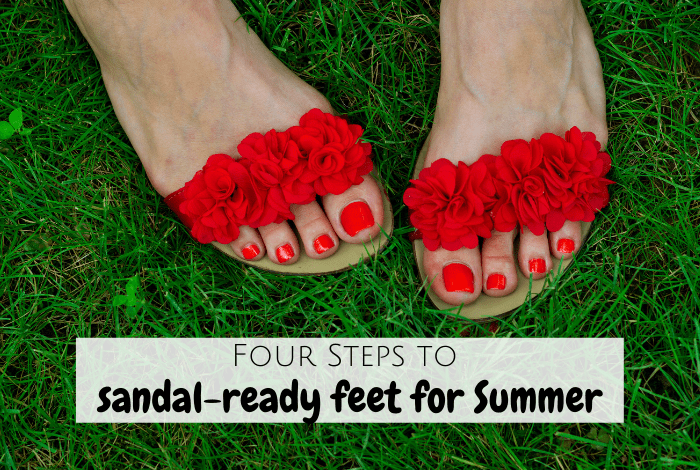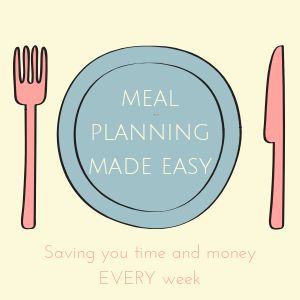I first came across Dave Ramsey a few years ago now and I kind of discounted them as they were very US centric and also seemed very much like common sense things to do. More recently though, I’ve gone back to them and adapted them to myself so today, I’m going to share with you Dave Ramsey’s Baby Steps – the UK version, adapted to fit what works for me.
You shouldn’t feel you have to do everything exactly as you’re told – use them as a guide for what works for you!

Now, I know I mentioned already that one of the reasons I wasn’t a fan right away was because I thought the steps were all just common sense. I’ll hold my hands up though and admit that I changed my mind after watching a few people online who were following the Dave Ramsey Baby Steps as part of their daily life and have been massively inspired by them. I realised that even though the baby steps are all things we probably know we should be doing, seeing them written down and having a plan really works for people.
I’m a list-a-holic so I have no idea why I ever even questioned the value of the list!
Baby Step Zero – Create your budget
Make sure you’re up to date with all of your bills and create your monthly budget using whatever method you prefer. I have a free monthly budget planner that you’re more than welcome to use or you can do it however you want – the main thing is that you have a budget. Dave Ramsey favours the Zero Based Budget which I’ll go into with you in more detail over the next few weeks but it basically means that every single penny in your budget is allocated a purpose (be it paying bills or going to a savings account).
Baby Step One – Create your Emergency Fund
Dave Ramsey recommends an emergency fund of $1000 to cover emergency expenses so when we were planning our emergency fund, the figure I had in my head was £1000 and we’ve got that much set aside now in a savings account. I’ve written about why I think every family should have an emergency fund here and also given an update on ours last week if you want to have a read.
Baby Step 2 – Pay off all debt using the Debt Snowball
The next step would be to make inroads on paying your debt off using the snowball method – something we adopted years ago when we started our journey to being debt free. It’s another one of those things that are common sense but it’s great advice and a great way to really focus on paying your debts off. I wrote about it how to use the debt snowball method here if you want to find out more about it.
Baby Step 3 – 3 to 6 months of expenses in savings
This is kind of where we’re at now although we’re dipping our toes into the next three steps at the same time which is probably something Dave would advise against. Basically, baby step 3 is all about saving enough money to cover 3-6 months worth of expenses if ever you needed it – it’s purpose is to stop you from having to get credit for something that you need urgently or to cover your income if you needed it to.
This is not a savings account for something you want though as that’s a whole different thing,
Baby Step 4 – Invest in your pension
The US version of this baby step actually reads as:
Invest 15% of household income into Roth IRAs and pre-tax retirement
I really have no idea what a Roth IRA is but I translated this to a more UK friendly Dave Ramsey baby step and decided to just up my contribution to my work pension. It’s a great scheme we have so it’s more than matched by my employer so I’m just paying more into that going forward. I jumped into this one early as I can only change my pension contributions once a year during a certain period and I didn’t want to wait a year.
Baby Step 5 – College funding for children
This is another one that doesn’t really translate too well because our system for education here is quite different to the one in the US. Our children don’t pay for college but should they choose to go on to university then they can get loans up front to pay for their tuition which is only paid back when they begin earning a certain amount of money. At this stage, I don’t know if my two will want to go to university or if they’ll choose a different career route but I’m paying into my employers share purchase scheme to help with these costs if and when we need to.
Baby Step 6 – Pay off home early
We’ve started this one too by setting up a Standing Order to overpay our mortgage each month. We have a plan to be mortgage-free at least 11 years ahead of schedule and based on what we’re overpaying now, we can easily achieve that. If you currently rent then your plan here should maybe be to save for a deposit for a house and then move on to repay the mortgage early.
Baby Step 7 – Build wealth and give
This step is the end goal – you’ve got no debt, your home is your own and you have funds set aside for expenses, emergencies and education (if necessary). Now’s the time to just keep on building that wealth however has worked for you, whether it’s investing or saving. I don’t agree that this is that stage you should start to give back though because even when we were on step one we would still do food shops for the local food bank and help our local charities. If you can’t afford to give money then time can be a great benefit for some charities – even an hours dog walking for your local dog shelter will help massively and won’t cost you a penny.
So that’s my attempt at Dave Ramsey’s Baby Steps – the UK version.
What step are you on right now in your life?
Don’t miss out on future posts like this – receive updates directly to your inbox by email by adding your email address here and hitting subscribe. You can also follow me on Twitter, BlogLovin or Networked Blogs and I’d love to see you over on my Facebook page and on Instagram. You can find out more about me here. Collaborative Post!







 Logging you in...
Logging you in... Loading IntenseDebate Comments...
Loading IntenseDebate Comments...

Steveark · 352 weeks ago
Dan · 351 weeks ago
Dan · 351 weeks ago
modzy78 20p · 328 weeks ago
Diana · 326 weeks ago
Stephanie · 307 weeks ago